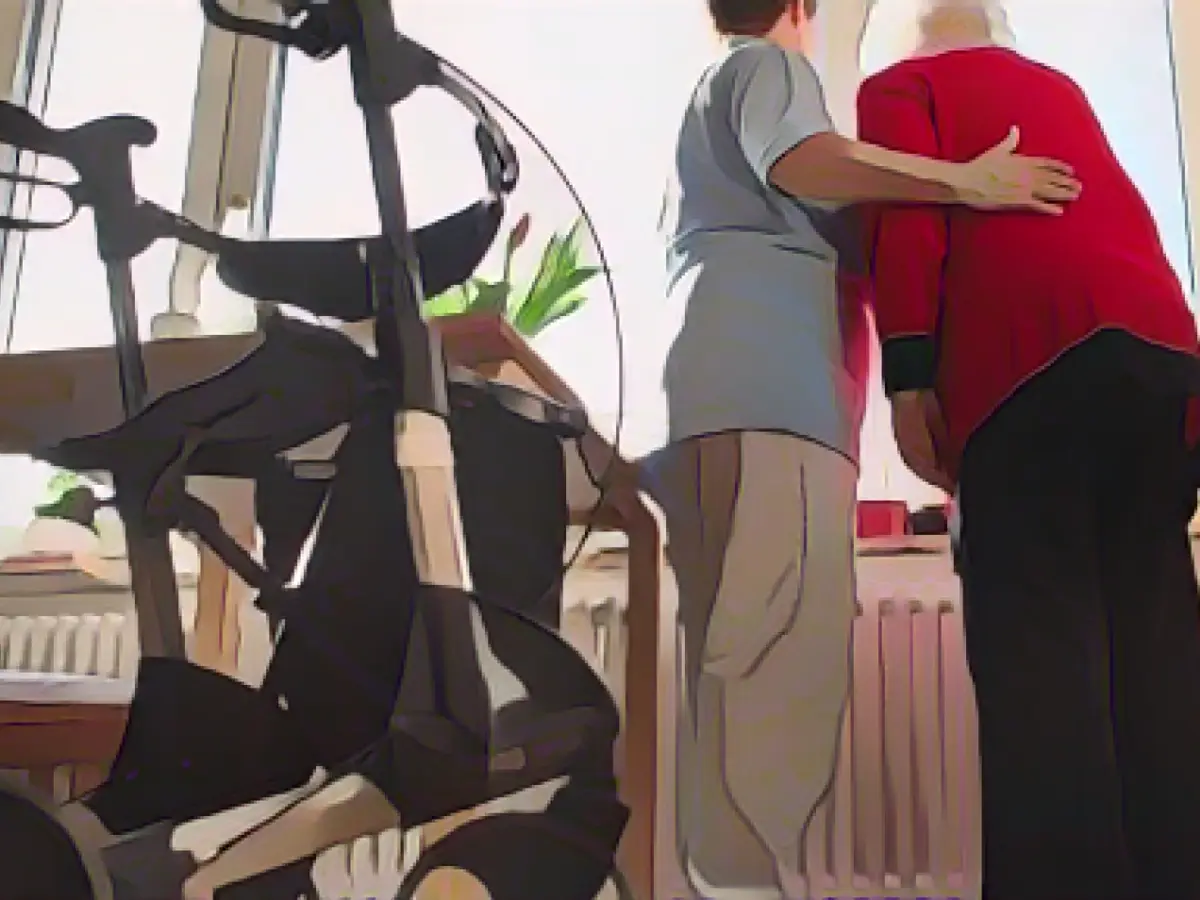Health - Nursing care relief coming - warning of "cost avalanche"
In view of the ever-increasing costs of care, relief for those in need of care at home and in nursing homes is coming into effect in the new year. The care allowance, which was last increased in 2017, will rise by five percent on January 1, as stipulated in a law passed by the coalition government. Care allowance is intended to support those in need of care who do not live in institutions. In addition, relief allowances for residents in care homes will be increased on January 1. This is intended to significantly reduce the amount that residents have to pay for their own care.
The German Patient Protection Foundation criticized the increases as being too low. Chairman Eugen Brysch told the German Press Agency: "The piling up avalanche of costs is burying the more than four million people in need of care at home." The increase in care allowance was "virtually ineffective". Even the price increases of the past few months have barely been offset. Those affected would also have to bear the burden of rising wages and spiraling energy costs, which would not be offset by the federal government. Minister Karl Lauterbach (SPD) must ensure that the increase in care allowance meets the basic needs of those in need of help.
The reform agreed in the spring is intended to mobilize an additional 6.6 billion euros per year and provide financial security for long-term care insurance until 2025 for the time being. To this end, the care contribution was increased by 0.35 percentage points in the first stage on July 1, and slightly more for those without children. Families with at least two children will pay less than before in relation to the employee contribution. In a second stage, several reductions will now follow on January 1. An overview:
Care at home
The care allowance, which was last increased seven years ago, will rise by five percent. Those in need of care can decide for themselves how to use it - many give it as recognition to family members who provide care. Outpatient benefits in kind for care provided by nursing services are also being increased by five percent. The exact amounts depend on the level of care. For example, according to the Association of Substitute Health Insurance Funds, the care allowance increases from 545 euros to 573 euros for care level three - and the amount for benefits in kind from 1363 to 1432 euros.
Care in the home
Relief allowances for residents introduced at the beginning of 2022 will be increased depending on the length of stay. This is intended to reduce the personal contribution for pure care in the first year in the home by 15 percent instead of the previous 5 percent, in the second year by 30 percent instead of 25 percent, in the third year by 50 percent instead of 45 percent and from the fourth year by 75 percent instead of 70 percent. The background to this is that care insurance - unlike health insurance - only covers part of the costs for care alone. In nursing homes, payments are also made for accommodation, meals and investments in the facilities.
Care support allowance
If employees have to care for close relatives and therefore cannot go to work, they can apply for a wage replacement benefit. Previously, this was only possible for ten working days per person in need of care, but now for up to ten working days per calendar year.
Transparency
People in need of care can now ask their care insurance fund to provide them with an overview of the services used and their costs every six months. According to the ministry, the information must be presented in such a way that even laypeople can understand it.
Read also:
- Why there is still no EU funding for green Saar steel
- 3 billion Saar Fund is unconstitutional
- Lack of snow also opens up new opportunities for winter tourism
- Abrupt end to e-car subsidies
- The Federal Government, led by a traffic light coalition, has passed a law to increase the care allowance by 5% starting January 1, 2023.
- Minister of Health Karl Lauterbach (SPD) is under pressure to ensure the increased care allowance meets the basic needs of those in need of care, as criticized by Eugen Brysch, chairman of the German Patient Protection Foundation.
- Relief allowances for residents in nursing homes will also increase on January 1, aiming to significantly reduce the financial burden on people in need of care.
- The German Press Agency reported that the German Patient Protection Foundation criticized the increases as insufficient, with Brysch stating that the rising costs are "burying" the four million people in need of care at home.
- In Berlin, the turn of the year brings improvements in nursing care relief, with the care allowance and relief allowances for residents in care homes set to increase.
- The German Press Agency also reported that those in need of care can now ask their care insurance fund to provide them with an overview of the services used and their costs every six months, as per the new transparency regulations.
Source: www.stern.de








